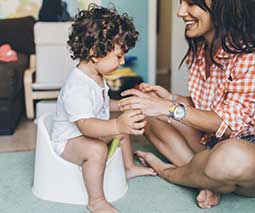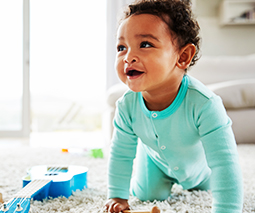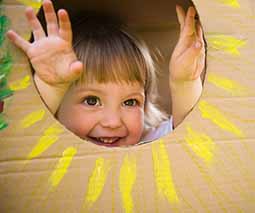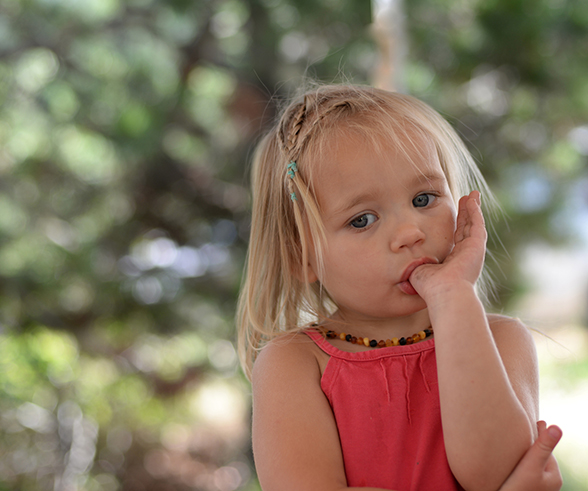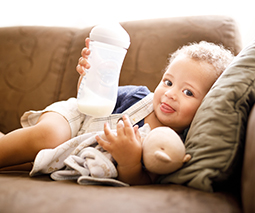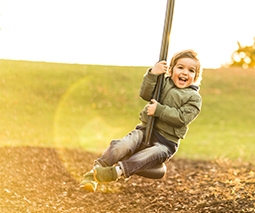Knowing these 4 stages of your child’s brain development will help you A LOT

We love anything that will help us along this confusing and at times, downright exasperating, parenting road.
Which is why understanding the four stages of your little one’s brain development will have you thinking “ah-ha” about so many things they do at different ages.
Here are the four stages according to neuroscience. Keep them in mind the next time you find yourself asking WHY?!!
Stage one – touchy-feely
Wondering why your baby enjoys rolling around on her soft and cuddly blankie? According to the sensorimotor stage in neuroscience, she is exploring her sense of touch.
This stage, which occurs between birth and age two, sees your little one experiencing her world through her senses. Think of her looking up at the leaves as they rustle in the wind, her digging her hands into the sand and letting it fall between her fingers, and tasting and then spitting out food.
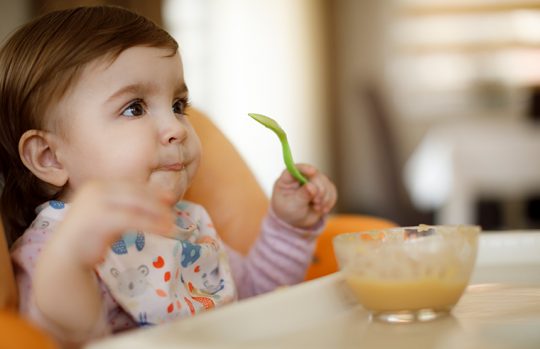
Stage two – look who’s talking
Between the ages of two and seven, your little one will be in the preoperational stage.
During these years, her language skills will be developing in leaps and bounds. You may have a chatterbox on your hands as her brain is grasping symbols, developing a numerical understanding, and the distinction between past and future.
Amazingly, your little one will start to realise that others don’t see the world quite as they do. But this takes time.
Before she can do this, she will have a self-centred viewpoint – which is developmentally appropriate.
It is also unrealistic for a two-year-old to be able to regulate her emotions and calm down. Which is why the tantrum in Coles isn’t something she can simply, ‘calm down’ from.
But around three or four is the age when your little one is starting to be able to see another point of view.
Play the Sally-Anne test with your child to see if she’s grasped this yet:
Tell your little one that Sally has a basket and Anne a box.
Sally puts a toy in her basket, then goes for a walk. Anne takes the toy and puts it in her box.
Ask, “When Sally gets back, where will she look for the toy?” If your child understands Sally’s point of view, she’ll say, “In the basket!”

Stage three – the age of reason
Trying to reason with your little one before she’s able to do this herself, is going to be a bit futile. This is because it isn’t until around age seven, that she’ll enter the ‘age of reason’.
From six to 12, your child will be in the ‘concrete operations stage’ of brain development.
This is the time for her to grasp abstract concepts, understand sequences of events, and be able to empathise with others whose experiences are different from hers.
It is also the stage where she’s able to pick up on what’s truly going on in the household – someone is stressed, mum and dad are fighting a lot, my brother is sad, that sort of thing.

Stage four – emotional brain
Wondering why your moody and hypersensitive teenager is pushing your buttons? It isn’t just because of hormones (although these play a part).
Right now she is starting to use her midbrain – which is responsible for memory, emotion, and sexuality. The rational part of her brain – the prefrontal cortex – won’t be fully developed until she’s around 25.
As such, decision-making, planning, impulse control, and risk avoidance isn’t something she’ll grasp for a few years – le sigh!
Also, your teen will be evaluating situations with her amygdala or emotional centre. This is why she’s so teary and has outbursts and also why she has a tendency to be a risk-taker. It feels good, it’s fun, it makes her momentarily happy, so she’ll do it without thinking too much.
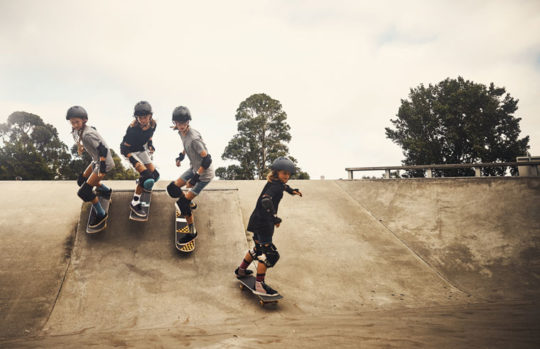
Have the safe sex talk with her and help her to find the vocabulary to avoid social pressures.
If she makes a mistake (and she will) try not to lecture or scold. Instead of talking about it and helping her to find the words for how she could have done something differently, will be more helpful.
Raising kids is a hard slog, but knowing how their brains develop can help you out as a parent. It takes out some of the guesswork!
